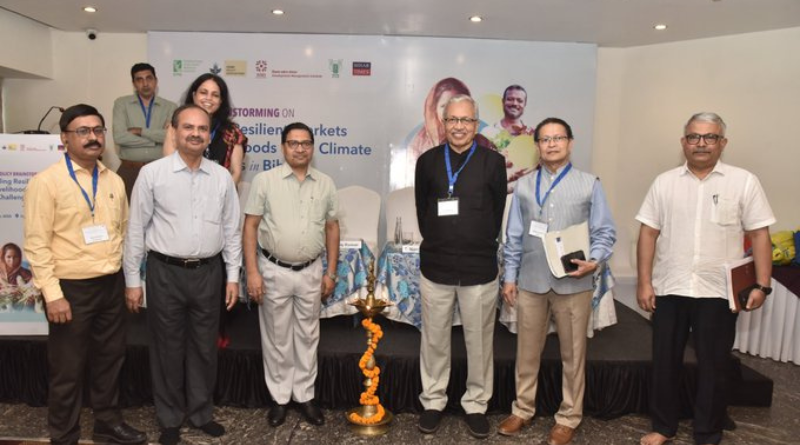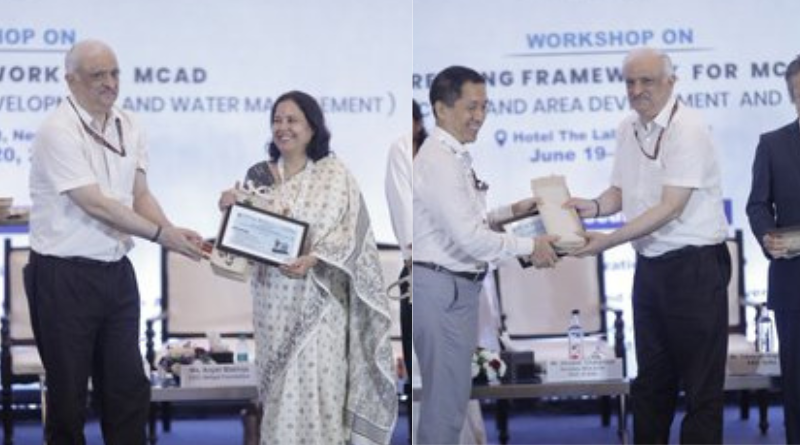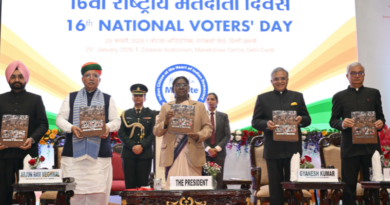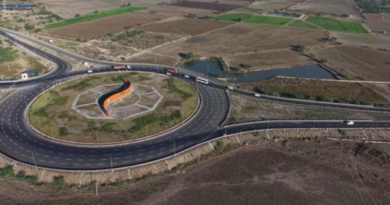The Climate-resilient agri-food systems meet in 2025, held in Patna.
Photo Credit: The Suncity News

Patna, June 21, 2025: In a bid to reimagine Bihar’s agri-food systems amidst rising climate challenges, a high-level policy brainstorming session was held in Patna.
Organized by the International Food Policy Research Institute (IFPRI) in the Development Management Institute (DMI), ICAR-Research Complex for Eastern Region (ICAR-RCER), and the CGIAR Science Program on Policy Innovations, the event gathered senior policymakers, researchers, civil society organizations, and development partners.
Held under the theme “Building Resilient Markets and Livelihoods amid Climate Challenges in Bihar,” the event focused on three key pillars: agri-food market and value chain reforms, climate adaptation strategies, and rural resilience.
In his welcome address, Dr. Shahidur Rashid, Director-South Asia, IFPRI, emphasized the urgency of moving away from “business-as-usual” practices.
“With Bihar’s high dependence on agriculture, addressing climate challenges and integrating allied sectors is crucial. Through IFPRI’s global partnerships, we stand ready to support Bihar’s development goals,” Rashid said.
Focus on systemic reforms in Bihar’s agri-food:
Pankaj Kumar, Principal Secretary, Agriculture Department, Government of Bihar (Chief Guest), highlighted the importance of value addition.
“Enhancing agricultural production is not just about output—it’s about aligning with consumption, improving quality, and ensuring market relevance. Cold-chain infrastructure and robust procurement systems are critical,” Kumar said.

Anil Kumar Jha, Cane Commissioner, Government of Bihar, is addressing the increasing threat of climate-induced stress on agriculture.
“Floods, droughts, and pest infestations are reshaping cropping patterns. Proactive initiatives like the Jal-Jeevan-Hariyali schemes must be scaled with scientific backing,” Jha said.
Innovation, market linkages, and inclusivity for Bihar’s agri-food:
T. Nanda Kumar, former secretary of, government of India, stressed the need to optimize value chains and boost farmer incomes.
“Even small innovations—like switching to plastic crates for transporting tomatoes—can uplift rural livelihoods. Capturing lost value and improving market linkages must be prioritized,” Nanda Kumar said.
Dr. Ujjawal Kumar, Director, ICAR-RCER, outlined research-driven solutions: “We’re promoting climate-resilient rice varieties, indigenous livestock breeds, and high-value crops. Partnering with startups and FPOs can make agriculture more sustainable and inclusive.”
Prof. Debi Prasad Mishra, Director, DMI, added: “Shrinking landholdings and declining youth interest in farming make it essential to rethink market access and the socio-economic fabric of agriculture in Bihar.”
Also Read: CM Nitish Kumar reviewed flood and drought preparedness and emphasized priority to disaster victims.
EOM.


